课内强化 9(完成时间:2013 年 3 月 31 日)
9.2. 制作一个控制台小时钟,每隔一秒输入一次当前的系统时间。然后扩展程序的灵活性,
允许用户提供输出频率、输出样式等选择
答:
#include
#include
#include
int main(){
int i;
//define
int time_format;
int sleep_time=0;
char *wday[]={"Sun","Mon","Tue","Wed","Thu","Fri","Sat" };
time_t timep;
struct tm *p;
void print_time(int t_f){//choose time format
if(t_f==1){
printf("%d.%d.%d ",(1900+p->tm_year), (1+p->tm_mon),p->tm_mday);
printf("%s\n%d:%d:%d\n\n", wday[p->tm_wday], p->tm_hour, p->tm_min,
p->tm_sec);
}
else if(t_f==2){
printf("%d:%d:%d\n\n", p->tm_hour, p->tm_min, p->tm_sec);
}
�
else{
printf("choose a wrong format!!!\n");
}
}
system("clear");
while(time_format!=1&&time_format!=2){
//choose time format
printf("choose time format(1 or 2).\n");
scanf("%d",&time_format);
if(time_format!=1&&time_format!=2)
printf("choose a wrong format!!!\n\n");
}
system("clear");
while(!(sleep_time>=1&&sleep_time<=10)){
printf("choose sleep time(1 to 10).\n"); //choose sleep time
scanf("%d",&sleep_time);
if(!(sleep_time>=1&&sleep_time<=10))
printf("choose a wrong time!!!\n\n");
}
system("clear");
for(i=0;i<10;i++){
//print times
time(&timep);
�
p=localtime(&timep);
print_time(time_format);
sleep(sleep_time);
}
return 0;
}
结果抓图:
�
9.3 选做题:编写一个程序,该程序可以采用命令行的方式提供参数,测试参数
所指程序的运行时间。可规定完成时间,若在指定时间内未完成则终止被测试
程序。输入的命令行格式如下:
./timetst yourprogram [time]
其中,yourprogram 是被测试程序,time 是规定完成的时间,若不提供或为 0 则
表示无限等待被测试程序。也可使它高级一些,作为扩展可以允许被测试程序
输入参数。
Timetst 代码:
#include
#include
#include
#include
#include
�
#include
char a[]="pkill ";//与b拼接得到终止程序进程部分
char *b;
void stop(){
system(b);
}
int main(int argc,char *argv[]){
struct timeval tv;
struct timezone tz;
long t_a;
long t_b;
if(argc==1){//若无参数,打印无程序执行
printf("NO program to execute!\n");
}
else if(argc==2){//有一个参数,执行并计算时间
char *arg=argv[1];
gettimeofday(&tv,&tz);
t_a=tv.tv_usec;//读取执行前时间,毫秒计时
system(arg);//执行程序
�
gettimeofday(&tv,&tz);
t_b=tv.tv_usec;//读取执行后时间,毫秒计时
printf("cost time:%ld ms\n",t_b-t_a);//前后相减,得到执行时间
}
else if(argc==3){//有两个参数,可以被终止
char *arg=argv[1];
char *arg2=argv[2];
int time=atoi(arg2);//终止时间从字符串转换为int型
/*该部消去一切’/’,得到程序的进程名,
如“./a/b/test”变为“test”*/
b=rindex(argv[1],'/');
char *c=malloc(strlen(b)-1);
int i;
for(i=0;i
}
//参数过多,异常打印
else{
printf("The number of parameter are too much!\n");
}
return 0;
}
检测程序Test的代码:
#include
#include
#include
int main(){
int i;
for(i=0;i<10;i++){
printf("sleep%d\n",i+1);
sleep(1);
}
}
�
�
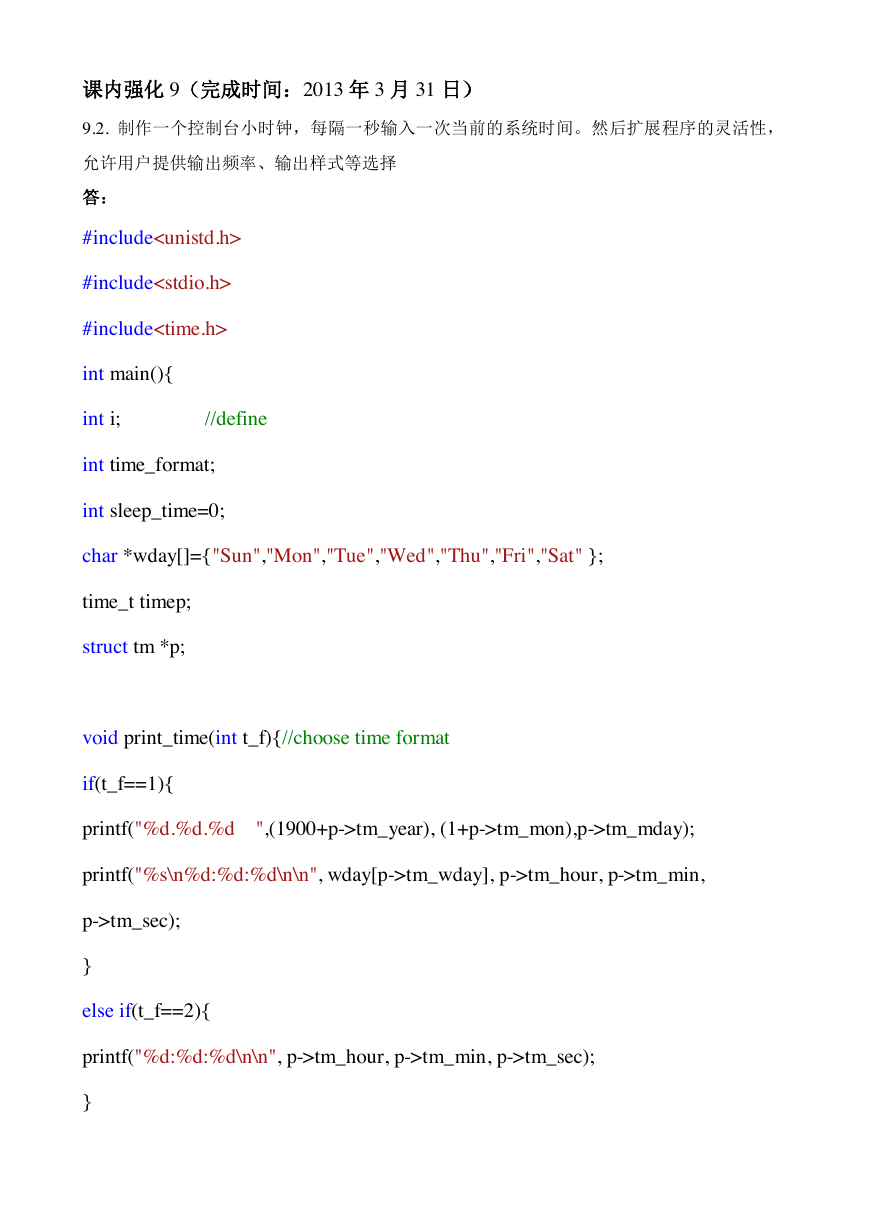
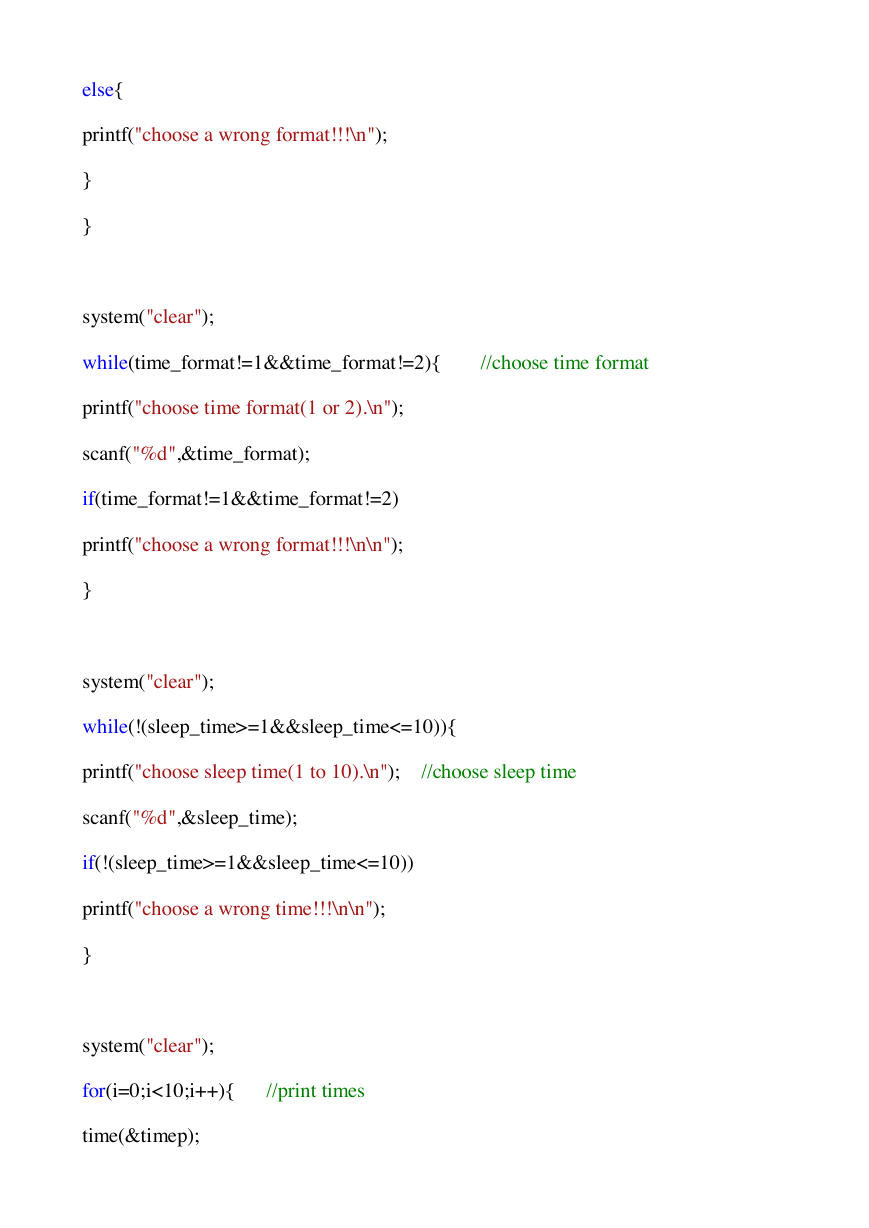
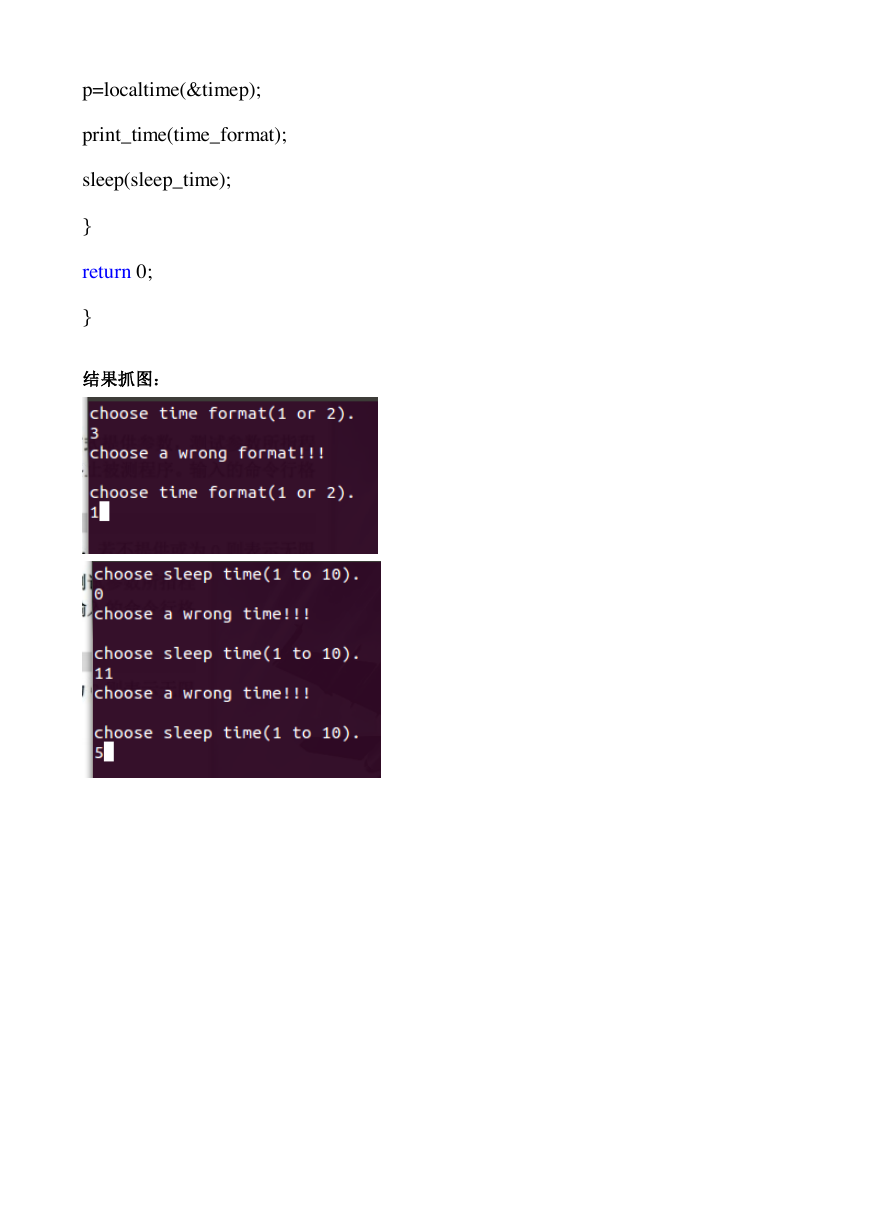
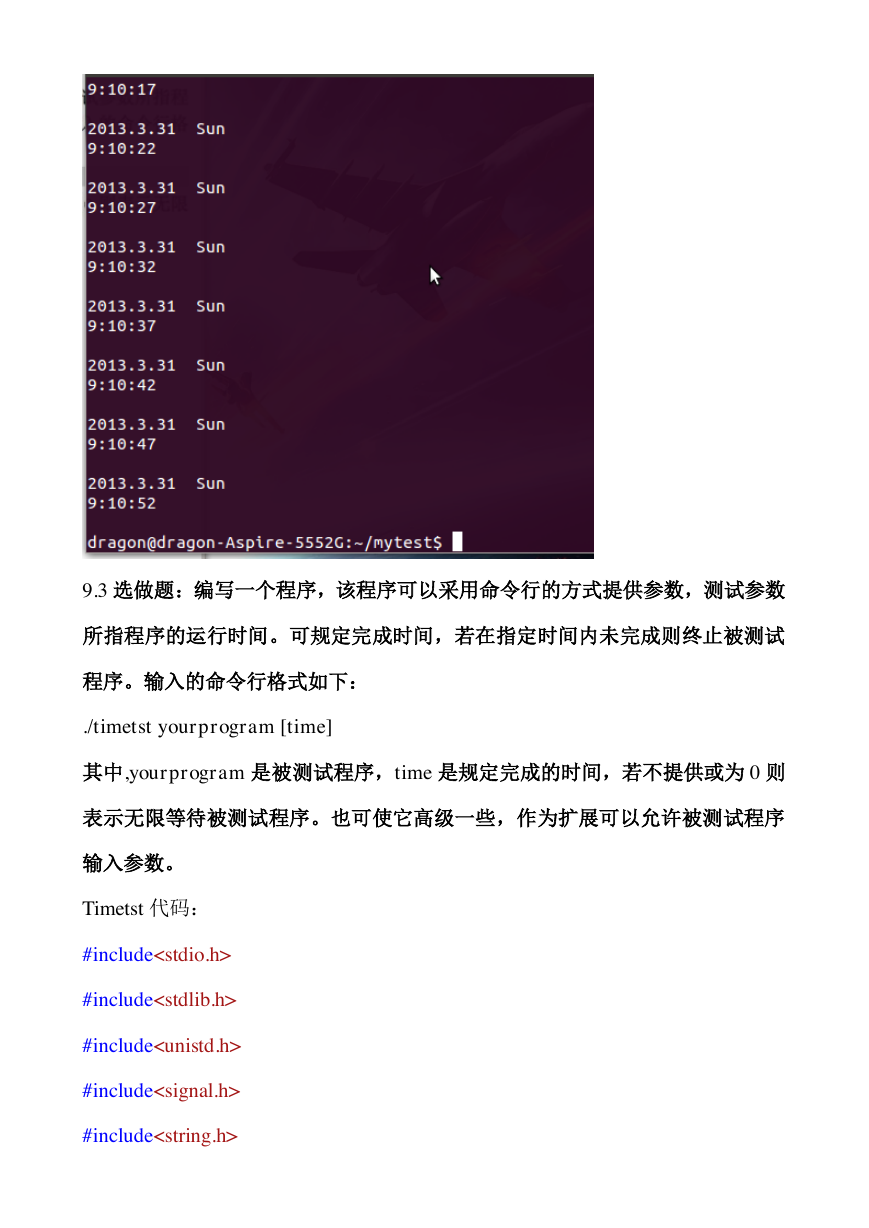
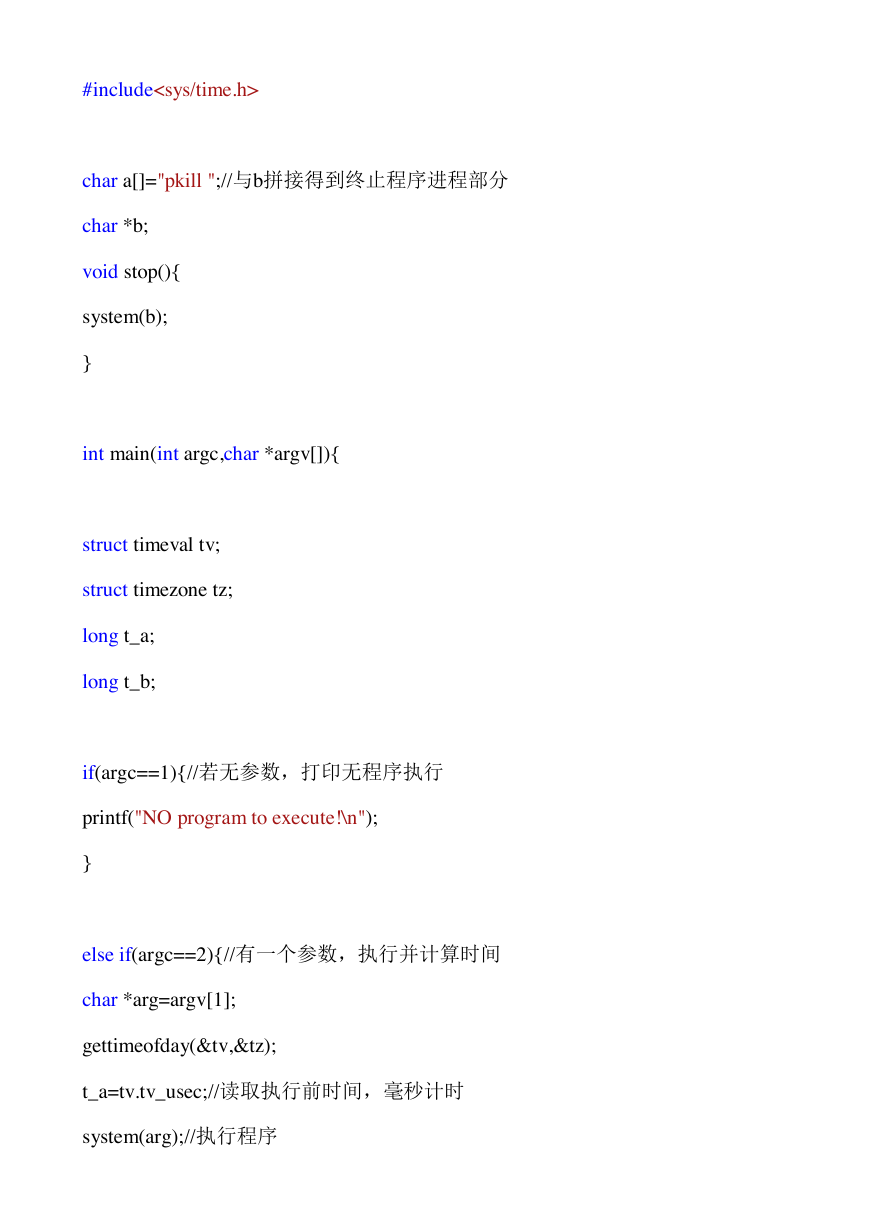
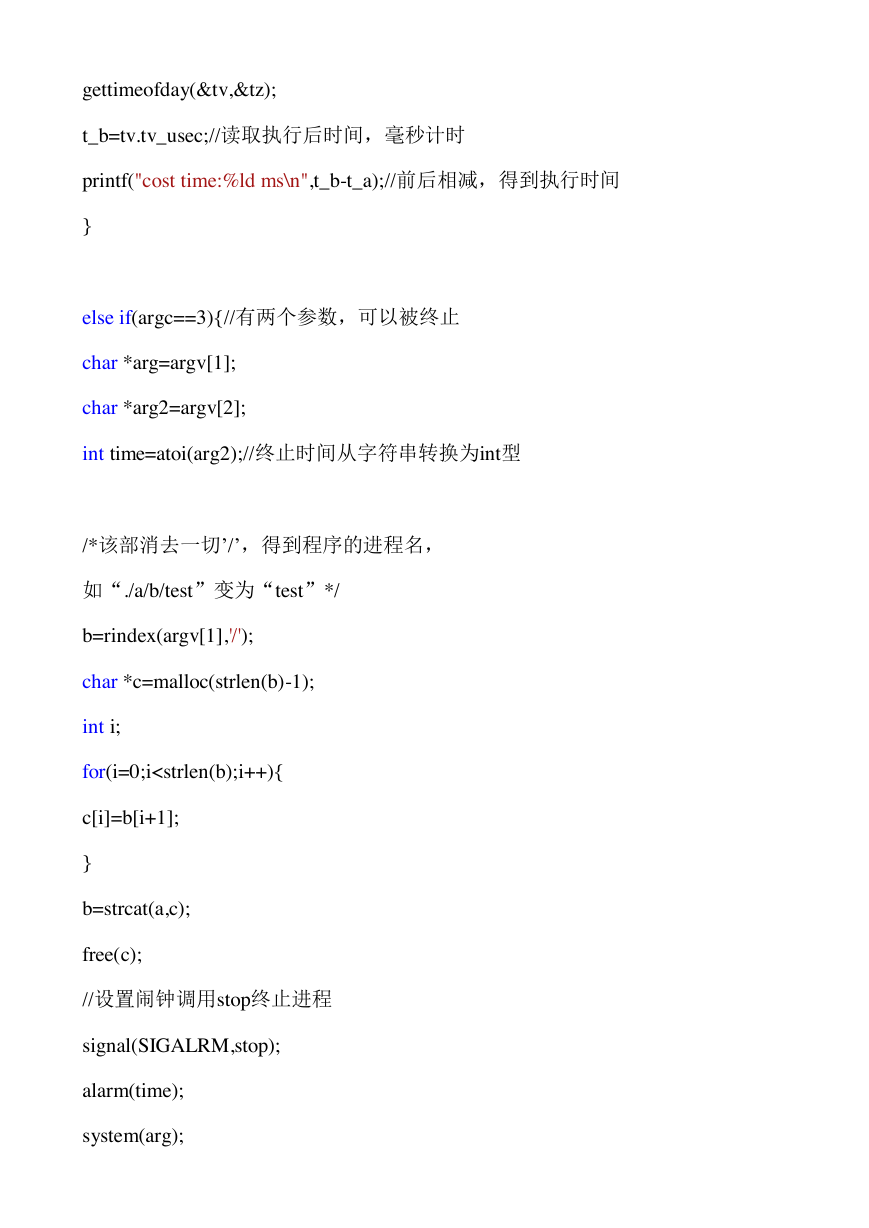
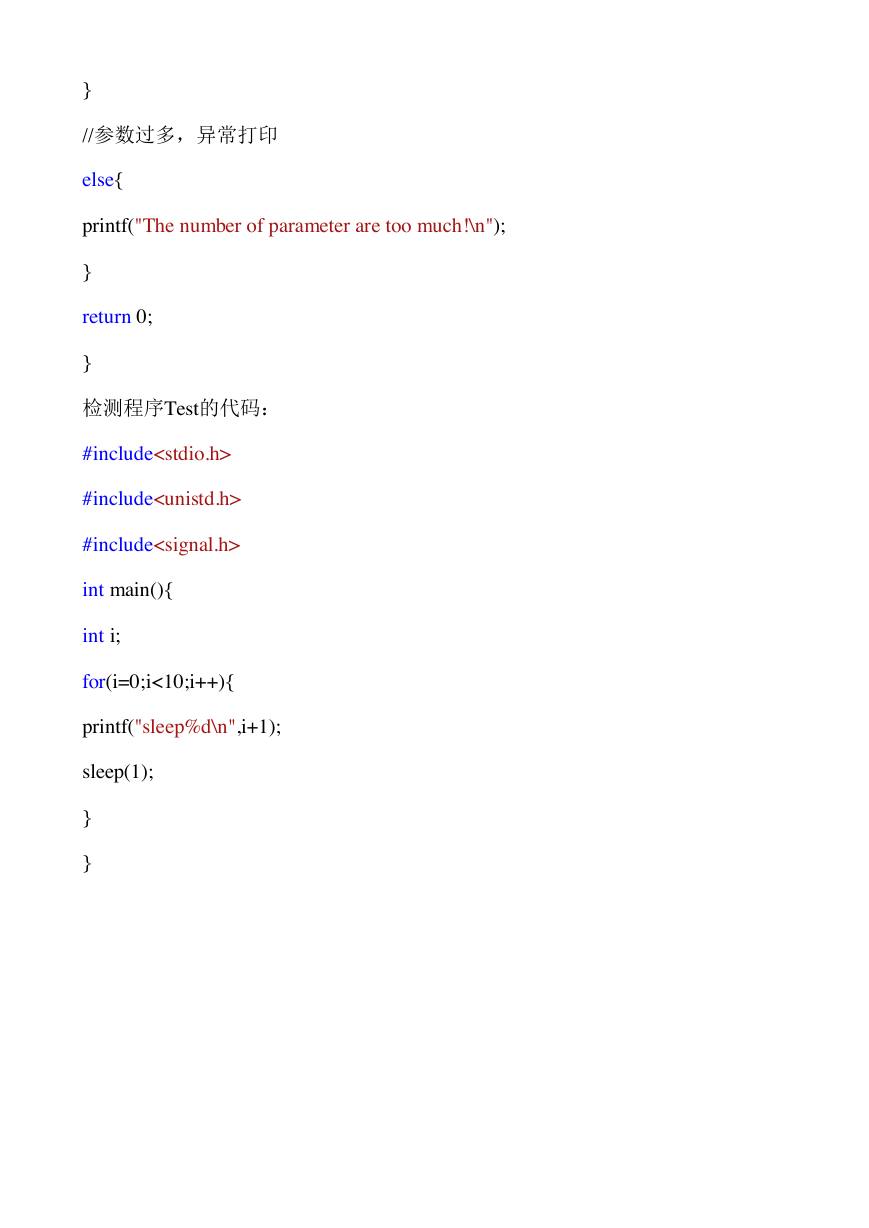
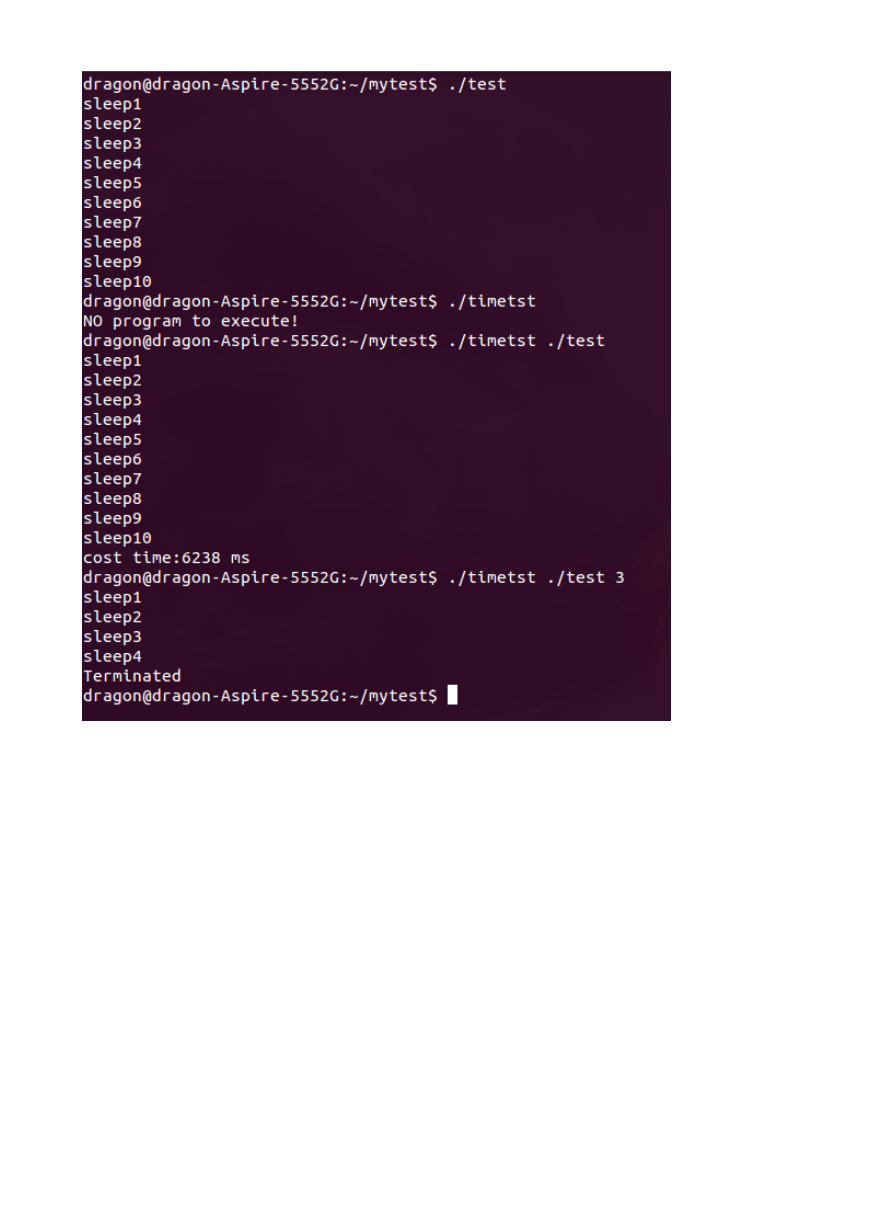








 2023年江西萍乡中考道德与法治真题及答案.doc
2023年江西萍乡中考道德与法治真题及答案.doc 2012年重庆南川中考生物真题及答案.doc
2012年重庆南川中考生物真题及答案.doc 2013年江西师范大学地理学综合及文艺理论基础考研真题.doc
2013年江西师范大学地理学综合及文艺理论基础考研真题.doc 2020年四川甘孜小升初语文真题及答案I卷.doc
2020年四川甘孜小升初语文真题及答案I卷.doc 2020年注册岩土工程师专业基础考试真题及答案.doc
2020年注册岩土工程师专业基础考试真题及答案.doc 2023-2024学年福建省厦门市九年级上学期数学月考试题及答案.doc
2023-2024学年福建省厦门市九年级上学期数学月考试题及答案.doc 2021-2022学年辽宁省沈阳市大东区九年级上学期语文期末试题及答案.doc
2021-2022学年辽宁省沈阳市大东区九年级上学期语文期末试题及答案.doc 2022-2023学年北京东城区初三第一学期物理期末试卷及答案.doc
2022-2023学年北京东城区初三第一学期物理期末试卷及答案.doc 2018上半年江西教师资格初中地理学科知识与教学能力真题及答案.doc
2018上半年江西教师资格初中地理学科知识与教学能力真题及答案.doc 2012年河北国家公务员申论考试真题及答案-省级.doc
2012年河北国家公务员申论考试真题及答案-省级.doc 2020-2021学年江苏省扬州市江都区邵樊片九年级上学期数学第一次质量检测试题及答案.doc
2020-2021学年江苏省扬州市江都区邵樊片九年级上学期数学第一次质量检测试题及答案.doc 2022下半年黑龙江教师资格证中学综合素质真题及答案.doc
2022下半年黑龙江教师资格证中学综合素质真题及答案.doc